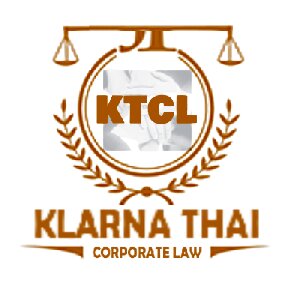Best Native People Lawyers in Watthana
Share your needs with us, get contacted by law firms.
Free. Takes 2 min.
List of the best lawyers in Watthana, Thailand
About Native People Law in Watthana, Thailand
Watthana is a diverse district within Bangkok, home to people from various backgrounds. In Thailand, the term "Native People" often refers to indigenous communities, officially known as "ethnic minority groups" or "hill tribes." While most such communities are concentrated in northern Thailand, some members live and work in urban areas like Watthana. Thai law does not recognize Native People as a separate legal category in Bangkok, but human rights, citizenship, land, and cultural preservation issues often affect them. Understanding their legal standing is crucial for protecting their rights and ensuring their fair treatment under Thai law.
Why You May Need a Lawyer
Native People in Watthana, Thailand, may encounter complex legal challenges that require specialized assistance. Common situations where legal advice is important include:
- Issues with citizenship or identity documents, such as registering births or establishing legal status in Thailand
- Discrimination or unequal treatment in employment, education, or health services
- Land rights disputes over property or ancestral land use
- Problems related to cultural preservation, such as protection of traditional practices or language rights
- Criminal or civil proceedings due to misunderstandings of local laws or customs
- Family law matters, including marriage or child custody disputes
- Access to social and governmental benefits
- Cases involving police or immigration authorities
A lawyer with experience in Native People law can help navigate these challenges, ensure legal representation, and protect individual and community rights.
Local Laws Overview
In Thailand, the legal rights of Native People are shaped by national laws, international human rights commitments, and specific administrative practices. Key issues relevant to Native People in Watthana include:
- Citizenship and Registration: Many Native People may lack formal citizenship or proper registration, affecting access to services and legal protections.
- Anti-Discrimination Laws: Thai law generally prohibits discrimination, yet practical challenges can arise due to lack of awareness or bureaucratic hurdles.
- Access to Education and Healthcare: Native People are legally entitled to public services, but documentation issues can prevent access.
- Employment Rights: Labor laws protect all workers, but knowledge of rights and legal recourse can be limited.
- Cultural Rights: Thailand supports cultural preservation but does not have specific urban policies, so customary practices may need legal protection.
- Legal Representation: Pro bono legal aid or public defenders may be available, but specialized support is sometimes necessary for complex cases.
Frequently Asked Questions
Who are considered Native People in Watthana, Thailand?
Native People typically refers to members of indigenous or hill tribe groups who may live temporarily or permanently in urban areas like Watthana. They retain distinct cultural, linguistic, and historical identities.
What legal challenges do Native People face in Watthana?
Common issues include lack of legal identification, difficulty accessing services, risk of discrimination, and challenges in employment, family law, and land rights.
Is legal assistance available for Native People in Watthana?
Yes, legal aid organizations, human rights groups, and private lawyers can provide assistance, especially if there are pressing legal or documentation issues.
What should I do if I experience discrimination in Watthana?
Document the incident and seek advice from a local lawyer or human rights group. Discrimination based on ethnicity is prohibited and may be actionable under Thai law.
How can Native People get Thai citizenship or legal documents?
The process requires evidence of birth, residency, and often the assistance of legal counsel to navigate government procedures and compile necessary documents.
Are there specific employment rights for Native People?
Thai labor laws apply equally to all legal residents. If facing exploitative conditions or unfair dismissal, seeking prompt legal advice is recommended.
Can Native People access public education and healthcare?
Yes, anyone legally residing in Thailand can access public services, but legal identification or residency documentation is always required.
What organizations help Native People in legal matters?
There are non-governmental organizations and governmental offices such as the Ministry of Social Development and Human Security that offer guidance and support.
How can cultural rights of Native People be protected in Watthana?
Legal measures, including advocacy by specialized lawyers or NGOs, can help secure the right to practice traditions, language, and cultural events.
What should I bring when consulting a lawyer?
Gather as much documentation as possible: ID cards, birth certificates, correspondence with authorities, employment records, and any evidence related to your legal issue.
Additional Resources
Several entities support Native People and can be helpful for those seeking legal advice:
- Ministry of Social Development and Human Security
- Department of Provincial Administration (DOPA) for citizenship and documentation
- Legal Aid centers within Bangkok, including university-based clinics
- Non-governmental organizations focused on minority and indigenous rights, such as the Hill Area and Community Development Foundation
- Bangkok Bar Association for referrals to experienced lawyers
Next Steps
If you or someone you know needs legal assistance related to Native People in Watthana:
- Collect all relevant documents and evidence related to your situation
- Contact a legal aid center, NGO, or private lawyer specializing in minority rights issues
- Request a consultation to discuss your specific issue, available options, and possible legal strategies
- Follow up on legal advice, including preparing for appointments and filing necessary forms or complaints
- If facing urgent matters such as detention, discrimination, or lack of access to services, seek immediate assistance and explain your situation clearly
Legal issues can be complex, but with the right information and support, you can better protect your rights and navigate the Thai legal system.
Lawzana helps you find the best lawyers and law firms in Watthana through a curated and pre-screened list of qualified legal professionals. Our platform offers rankings and detailed profiles of attorneys and law firms, allowing you to compare based on practice areas, including Native People, experience, and client feedback.
Each profile includes a description of the firm's areas of practice, client reviews, team members and partners, year of establishment, spoken languages, office locations, contact information, social media presence, and any published articles or resources. Most firms on our platform speak English and are experienced in both local and international legal matters.
Get a quote from top-rated law firms in Watthana, Thailand — quickly, securely, and without unnecessary hassle.
Disclaimer:
The information provided on this page is for general informational purposes only and does not constitute legal advice. While we strive to ensure the accuracy and relevance of the content, legal information may change over time, and interpretations of the law can vary. You should always consult with a qualified legal professional for advice specific to your situation.
We disclaim all liability for actions taken or not taken based on the content of this page. If you believe any information is incorrect or outdated, please contact us, and we will review and update it where appropriate.










